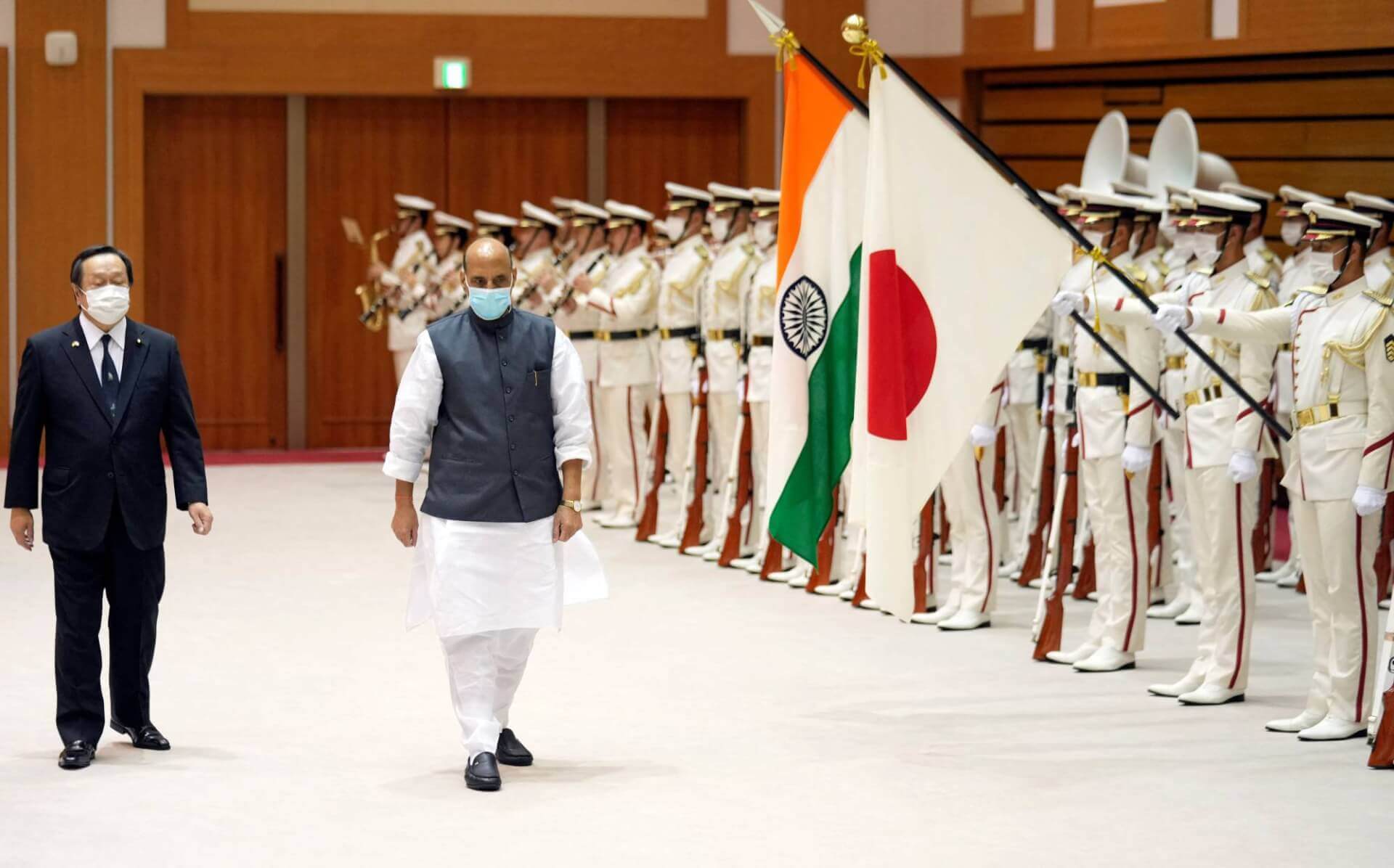India and Japan are participating in the sixth edition of the Japan India Maritime Exercise 2022 (JIMEX 22) in the Bay of Bengal.
A press release by India’s Ministry of Defence (MoD) said that the goal of the week-long exercise, which began on Sunday, is “to consolidate the high degree of interoperability that exists between maritime forces of the two countries, through complex exercises in the surface, sub-surface and air domains.”
The exercises are split into two phases, with some drills taking place at sea and others at Visakhapatnam, in what it called the ‘harbour phase.’
Japan’s Maritime Self Defence Force (JMSDF) ships are being led by R Admiral Hirata Toshiyuki the commander escort of Flotilla Four, while the Indian Navy’s fleet is led by R Admiral Sanjay Bhalla, the commanding flag officer of the Eastern Fleet.
Kavaratti led by RAdm Sanjay Bhalla, NM, Flag Officer Commanding Eastern Fleet, are participating in the ex JIMEX 22 and seeks to strengthen the close links & interoperability between IN and JMSDF through the conduct of complex exercises in all dimensions of naval warfare.(2/2) pic.twitter.com/lWCCqboGvA
— Eastern Naval Command (@IN_HQENC) September 12, 2022
The JMSDF fleet is comprised of various ships, including a Helicopter Carrier and the Takanami guided missile destroyer. The Indian Navy’s fleet, meanwhile, includes three indigenously designed and built warships called the Sahyadri, a multi-purpose stealth frigate, and the Kadmatt and Kavaratti anti-submarine warfare corvettes.
The exercise’s latest edition marked the 10th anniversary of JIMEX, which first began in Japan in 2012. The drill also comes as both countries celebrate the 70th anniversary of the establishment of their diplomatic relations.
Speaking at a news conference on Tuesday, Admiral Ryo Sakai, chief of staff of the MSDF, said the drills would “contribute greatly to the realisation of a free and open Indo-Pacific.” He also vowed to “continue efforts to strengthen cooperation between Japan and India”.
Guided Missile Destroyer Ranvijay, Fleet Tanker Jyoti, Offshore Patrol Vessel Sukanya, submarines, MIG 29K fighter aircraft, Long Range Maritime Patrol Aircraft and ship-borne helicopters are also participating in the exercise: Indian Navy
— ANI (@ANI) September 13, 2022
The exercise also comes on the back of the two countries’ 2+2 Dialogue in Tokyo last Thursday, during which they agreed to further strengthen cooperation in their joint pursuit of a free and open Indo-Pacific and India’s vision for Security and Growth for All in the Region (SAGAR). India was represented by External Affairs Minister (EAM) S. Jaishankar and Defence Minister (DM) Rajnath Singh, while Japan was represented by their counterparts Yoshimasa Hayashi and Yasukazu Hamada.
The ministers discussed ways to enhance their maritime cooperation including through the Maritime Domain Awareness initiative. They agreed that the India-Japan partnership is essential to secure a “free, open, rule-based and inclusive Indo-Pacific based upon sovereignty and territorial integrity of nations.” To this end, Singh asserted that India’s Indo-Pacific Oceans Initiative (IPOI) shares “many commonalities” with Japan’s Free and Open Indo-Pacific (FOIP) initiative.
#IPD22 unit is conducting the 🇯🇵🇮🇳 bilateral exercise JIMEX2022💪 This year marks the 10th anniversary of this exercise and the 70th anniversary of the 🇯🇵🇮🇳 diplomatic relationship🎊 #JMOD/#JSDF continues to cooperate with 🇮🇳 for upholding & reinforcing #FreeandOpenIndoPacific🤝🏻 https://t.co/5VcvXuIwW6
— Japan Ministry of Defense/Self-Defense Forces (@ModJapan_en) September 14, 2022
Singh noted that the two sides discussed “the progress in the military-to-military cooperation and exchanges,” adding that they share a “common desire” to “increase the scope and complexities” of their bilateral exercises. He ALSO announced the launch of Staff Talks between the Joint Staff of the Japanese Self Defense Forces (SDF) and the Integrated Defence Staff of India. Furthermore, he revealed that the two countries’ air forces are “working closely” to conduct the inaugural air force fighter exercise in order to “pave way for much greater cooperation and interoperability.”
He further remarked that the “growing complexities” in their bilateral defence exercises are “a testimony” to the “deepening of defence cooperation.” To this end, Singh and Hamada expressed their commitment to continue holding bilateral and multilateral exercises including ‘Dharma Guardian’, ‘JIMEX’ and ‘Malabar’. According to the Indian government, they also welcomed the operationalisation of the Reciprocal Provision of Supply and Services Agreement during the ‘MILAN’ multilateral exercise in March this year.
The latest exercise rer strengthened cooperation in the face of growing Chinese aggression in the region.

